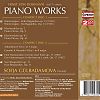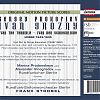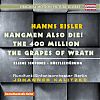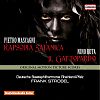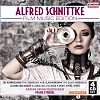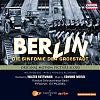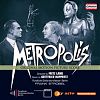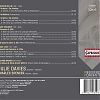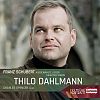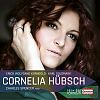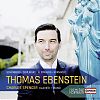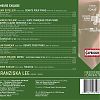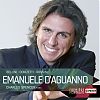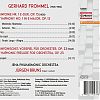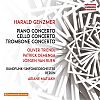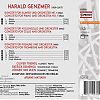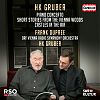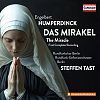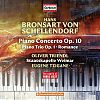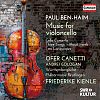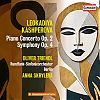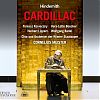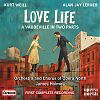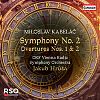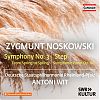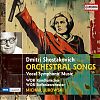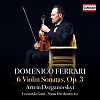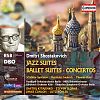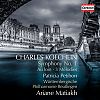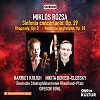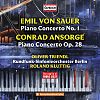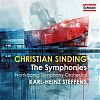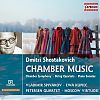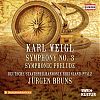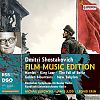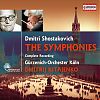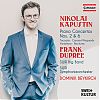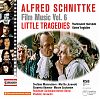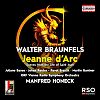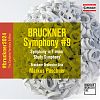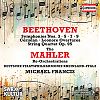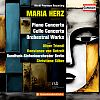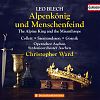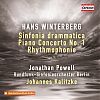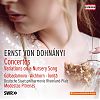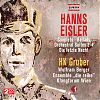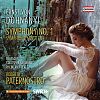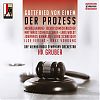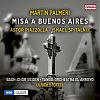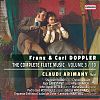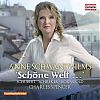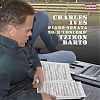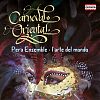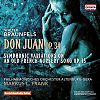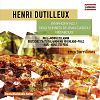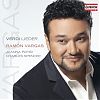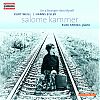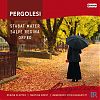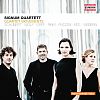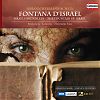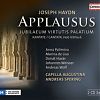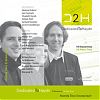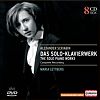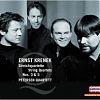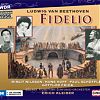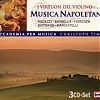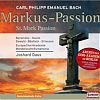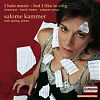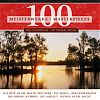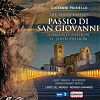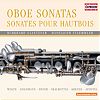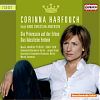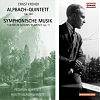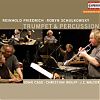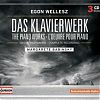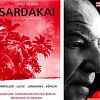cd

ERNST VON DOHNÁNIY (1877 - 1960)
SOFJA GÜLBADAMOVA, Klavier / piano
Dohnányis Piano works are influenced of the late romantic aera, with different character pieces formed as a cycle like the late piano works of Brahms.
Sofja Gülbadamova, prizewinner of many international competitions, is being highly acclaimed for her poetic interpretations, profound musicality as well as astonishingly varied sound palette. Since many years she take care of Dohnányis piano Oevre.
Weitere Bilder

PROKOFIEV: IVAN THE TERRIBLE
MARINA PRUDENSKAYA, alto · ALEXANDER VINOGRADOV, bass · RUNDFUNKCHOR BERLIN · RUNDFUNK-SINFONIEORCHESTER BERLIN · FRANK STROBEL
(UDSSR 1943-1945)
Epic film by Sergej Eisenstein (1898-1948)
with Music for soli, choir and orchestra by Sergey Prokofiev op. 116
First complete new recording oft he reconstructed original score
IVAN THE TERRIBLE – the second joint project of Sergei Eisenstein and Sergei Prokofiev – is, much like ALEXANDER NEWSKI, a historical epic, portraying the rise and fall of the autocratic ruler Ivan IV in the 16th century. Sergei Prokofiev’s musical portrayal is unique in film history, for the score conceives both parts of the film on an epic scale. Prokofiev’s rich melodic invention thrives on the expressive sound palette of his native Russia, mostly as they echo the spiritual works of the Russian-orthodox liturgy.
Youtube
Weitere Bilder

Premiere Portraits: Julie Davies
Julie Davies, soprano · Charles Spencer, piano
VINCENZO BELLINI (1801 – 1835)
Sei Ariette / Six Ariettas
No. 2: Vanne, o rosa fortunate (Pietro Metastasio)
La farfalletta (Anonymus)
Sei Ariette / Six Ariettas
No. 5: Per pietà, bell’idol mio (Pietro Metastasio)
No. 6: Ma rendi pur content (Pietro Metastasio)
FRANZ SCHUBERT (1797 – 1828)
4 Canzonas D. 68888
Vedi, quanto adoro D. 510 (Pietro Metastasio)
FRANZ LISZT (1811 – 1886)
3 Sonetti del Petrarca, S. 270a
RICHARD WAGNER (1813-1883)
Les adieux de Marie Stuart WWV 61(Pierre-Jean de Béranger)
With “Première Portraits” CD-Edition Capriccio set an example for the support of young and talented artists and invite them to release their première CD for a worldwide audience.
American soprano Julie Davies has been featured in Darmstadt’s productions of The Tales of Hoffman (all four ladies), I Pagliacci (Nedda), Don Pasquale (Norina), La traviata (Violetta), Desdemona in Otello and Gerhilde in Die Walküre. Ms. Davies is specifically celebrated for her performances of the title roles in Lucia di Lammermoor and La sonnambula. Ms. Davies has won several competitions: Metropolitan Opera Regional Auditions, First in the Naftzger Young Artists Competition, and Finalist in the Marilyn Horne Foundation Competition
Weitere Bilder

Premiere Portraits: Franziska Lee
Franziska Lee, piano
Henri Dutilleux (1916 – 2013): Sonate pour piano 1947-1948
»À Geneviève Joy«
Francis Poulenc (1899 – 1963)
Suite française pour piano d’après Claude Gervaise (XVIe siècle) FP 80b 1935 »À Edouard Bourdet«
Francis Poulenc (1899 – 1963): Mélancolie Très modéré FP 105
1940 »À Raymond Destouches«
Jean Françaix (1912 – 1997): Sonate pour piano 1960 »À Idil Biret«
Francis Poulenc (1899 – 1963) Napoli – Suite pour le piano FP 40
1922-1925 »À la mémoire de Juliette Meerovich«
Pierre Sancan (1916 – 2008): Toccata Vif 1943 »À mes chers Parents«
With “Première Portraits” CD-Edition Capriccio set an example for the support of young and talented artists and invite them to release their première CD for a worldwide audience.
Weitere Bilder

GERHARD FROMMEL (1906-1984)
Jena Philharmonic Orchestra · Jürgen Bruns
Music in the tempest of the times
If we seek to deal with Gerhard Frommel’s personality and music (a master pupil of Hans Pfitzner) in greater depth, as in the case of many other German composers of his generation, we cannot avoid going into the historical and political events and the underlying active and reactive behaviour of the individual. Concepts like opportunism or passive obedience come readily to mind, but they fall short of the truth, if we were not direct contemporary witnesses.
His position during the years 1933-45 becomes all the more salient as regards the works recorded here, both of which were written at that time. Many things sound familiar, Wagner, Bruckner and other elements from the past stand out trenchantly, ‘For me, the 1st Symphony is at the centre of my oeuvre.’ Frommel says. Many things sound familiar, Wagner, Bruckner and other elements from the past stand out trenchantly,The score reached Wilhelm Furtwängler, who then scheduled its premiere with the Vienna Philharmonic for the autumn of 1942.


